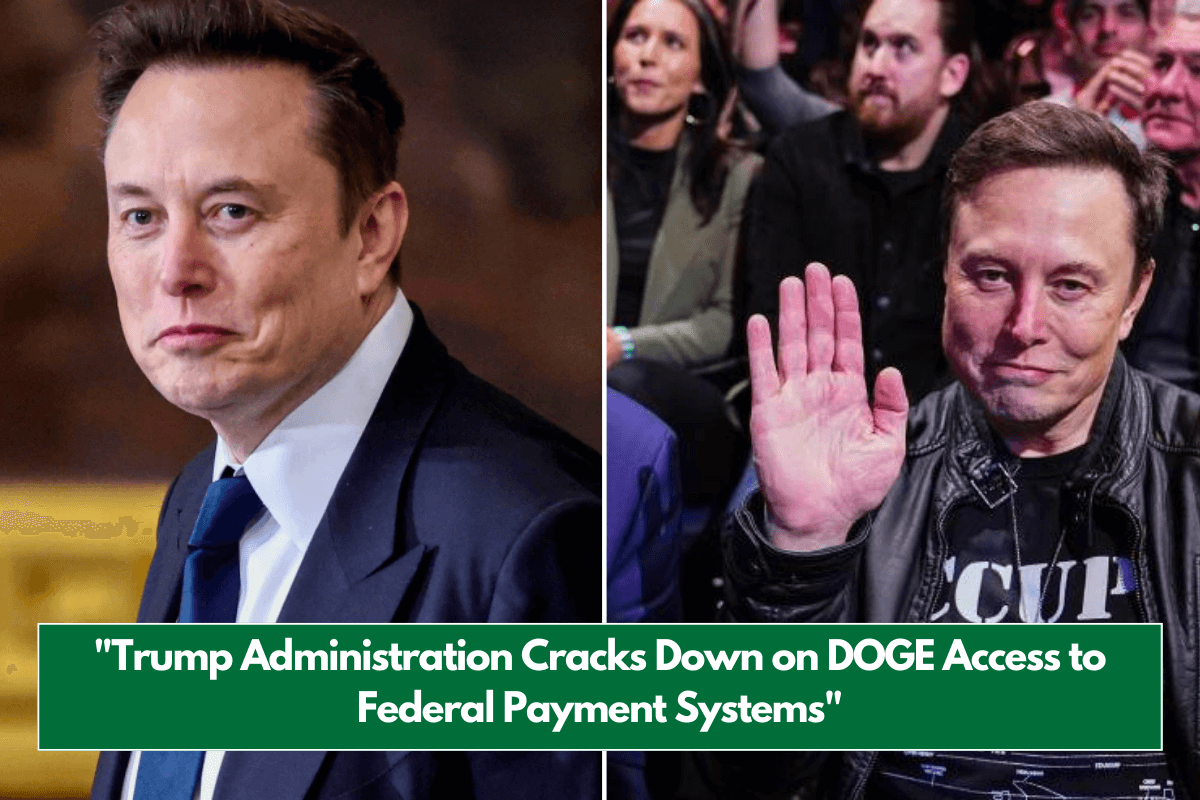Elon Musk, leading the Department of Government Efficiency (DOGE) under President Donald Trump’s second administration, is facing legal challenges amid growing concerns over privacy, accountability, and his influence on federal agencies.
A recent lawsuit brought by union members and retirees claims that DOGE’s access to the Treasury Department’s payment system violates federal privacy laws.
The controversy highlights fears over Musk’s involvement in reshaping government operations while critics accuse him of overstepping legal and ethical boundaries.
The Lawsuit: Protecting Sensitive Financial Data
The lawsuit centers on the allegation that the Treasury Department, led by newly appointed Secretary Scott Bessent, improperly granted DOGE access to sensitive financial data.
This includes the personal data of millions of individuals within the government’s massive payment and collections system, managed by the Bureau of the Fiscal Service.
According to the lawsuit, Bessent made this decision “behind closed doors,” giving access to individuals not directly involved in processing government transactions. The plaintiffs argue that this move poses significant risks of unauthorized data sharing or exposure.
“Giving access to those records is unlawful,” the plaintiffs stated. They emphasize that the longer DOGE has access to this information, the higher the risk of potential leaks, whether accidental or deliberate.
Temporary Agreement Reached
To address the immediate concerns, attorneys for the Justice Department have agreed to restrict DOGE staff from accessing Treasury payment records.
Only two special government employees—Tom Krause and Marko Elez—will be permitted “read-only” access to perform their duties. This restriction will stay in effect pending a court hearing.
However, a federal judge must still sign off on this temporary order, and further legal proceedings will determine its long-term status.
Government’s Defense: No Data Leaks
During a court hearing, Justice Department attorney Bradley Humphreys denied the claim that Americans’ personal data is being shared outside Treasury.
Humphreys clarified that only two DOGE appointees, classified as special government employees, have access, and they do not intend to share this information with Musk or others outside the department.
Still, the plaintiffs argue that even limited access poses a threat. They believe Musk’s influence over government operations, coupled with DOGE’s mission to overhaul federal agencies, creates an environment where sensitive data could be mishandled.
Musk’s Role in DOGE and Broader Government Changes
Musk’s leadership of DOGE has drawn sharp criticism, particularly from Democrats, who see him as an unelected powerbroker reshaping the federal government without accountability.
As a special government employee, Musk holds a temporary advisory role and is not a full-time federal worker. Nevertheless, his influence has been profound.
DOGE, which Trump established by renaming the U.S. Digital Service, is tasked with cutting government inefficiencies. Musk has embraced this mission enthusiastically, referring to DOGE as a “wood chipper for bureaucracy” and targeting various federal agencies.
One of Musk’s most controversial moves was pushing to shut down the U.S. Agency for International Development (USAID), drastically slowing humanitarian aid efforts. He has also targeted the Consumer Financial Protection Bureau, which oversees financial regulations meant to protect consumers.
Political Backlash: Concerns Over Musk’s Expanding Power
The backlash against Musk has intensified as his role in the government grows. Democrats, led by figures like Sen. Patty Murray, have accused Musk of using his position to gain access to sensitive government data while undermining critical programs.
Murray described Musk as “an unelected, unaccountable billionaire” with conflicts of interest and ties to foreign powers like China. In a recent speech, she accused him of “hijacking our nation’s most sensitive financial data system and its checkbook.”
Musk, however, remains defiant. He defends DOGE as a necessary effort to reduce wasteful spending and streamline government processes. “We’re here to fix what’s broken,” Musk said in a recent statement on X (formerly Twitter).
Expanding Influence: DOGE’s Role in Other Departments
Musk’s influence is spreading beyond the Treasury Department. Earlier this week, Transportation Secretary Sean Duffy announced that DOGE would assist in upgrading the U.S. aviation system.
This comes as part of a larger effort by Musk and Trump to modernize outdated federal systems, although critics argue that the aggressive cuts could harm public services.
As Musk continues to reshape various arms of the federal government, questions about transparency and accountability loom large. His role as a temporary government advisor with extensive power has sparked debate over whether his actions are a necessary reform or a dangerous overreach.
The ongoing lawsuit could determine how far Musk’s access to sensitive government data will go. But with Musk’s influence expanding into multiple departments, the broader impact of his vision for government “efficiency” will likely remain a contentious issue for the foreseeable future.
